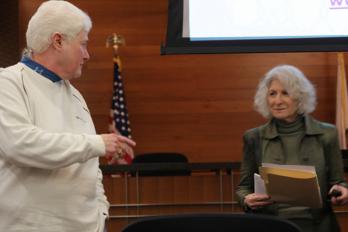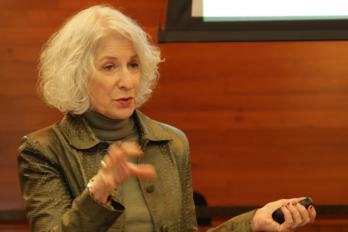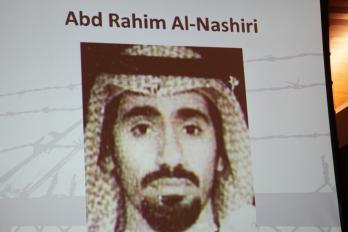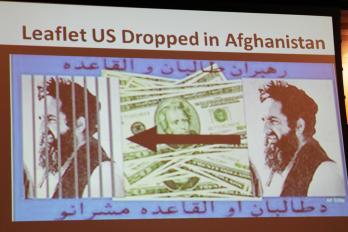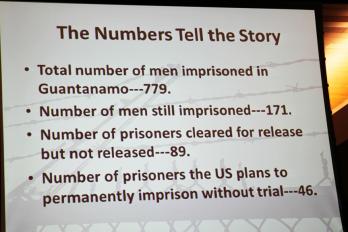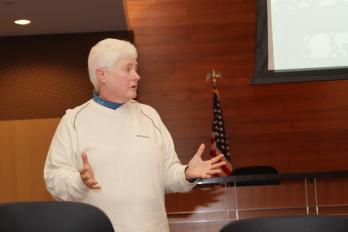TJSL Students Get an Inside Look at Guantánamo Prison
March 21, 2012
Defense Attorney Nancy Hollander said she will “talk about Guantánamo anywhere, anytime, with anyone who’s willing to listen.”
She found her audience at Thomas Jefferson School of Law on March 20, in a special lecture on the history of the Guantánamo Detention Center and her experience representing clients at “Gitmo,” where suspected terrorists are housed.
Hollander was invited to appear by TJSL Adjunct Professor Jane Siegel, a former Marine Corps colonel, military judge, prosecutor, JAG and Chief Defense Counsel of the Marines. Professor Siegel teaches Military Justice at TJSL. “Nancy Hollander is an internationally known criminal defense counsel who fights for each client as her way to change the world,” said Professor Siegel.
The picture Hollander painted of the Gitmo prison is a bleak one.
Hollander has two clients at Guantánamo including Abd Rahim Al-Nashiri, who faces the death penalty in the bombing of the Navy ship U.S.S. Cole in 2000 that killed 17 American sailors.
“The Constitution doesn’t exactly apply in Guantánamo,” Hollander told the audience. “It’s Kangaroo Court. ”
According to Hollander, many of the inmates wound up at Gitmo because the U.S. government dropped leaflets offering a $5,000 reward to Afghanis and Pakistanis who could turn in a terrorist and “there was no probable cause when they were picked up.”
The U.S. authorities put up so many barriers for civilian defense attorneys, Hollander said, including the rigors of just traveling to Guantánamo.
“It’s very difficult to represent your client. They are shackled to the floor when you speak to them, everything they say is classified and you have to leave your notes there (at Guantánamo) in a secure room. You can’t take them with you.”
Also, Hollander says that coerced testimony may be admissible as evidence and hearsay is definitely admissible.
She believes that Al-Nashiri’s trial, the first death penalty case at Guantánamo, will be a “show trial.”
“Even if he is acquitted, the government claims the authority to send him back to his cell rather than release him.” Of the 171 suspected terrorists still being held at Guantánamo, Hollander says 89 have been cleared for release, but more than 40 are being kept at the prison indefinitely.
“Nancy Hollander’s presentation brought home the horror and injustice of the facility in Guantánamo,” said Professor Siegel. “We learned the origins of the camp and the role torture played as well as the lack of due process and anything resembling an attorney client privilege. It was horrifying to hear.”
